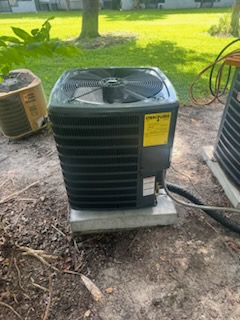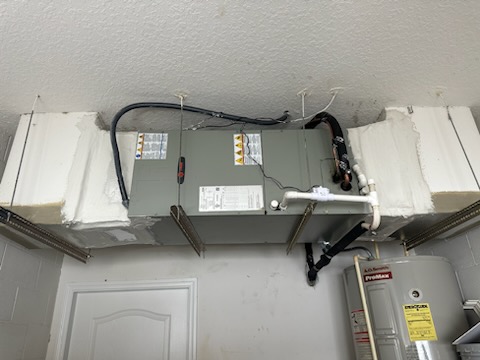HVAC Repair 101: What Every Homeowner Should Know
HVAC Repair 101: What Every Homeowner Should Know
Blog Article
How to Identify When Your HVAC System Needs Repair
Heating, Ventilation, and Air Fitness (HVAC) methods are important for sustaining ease in properties and businesses. However, like all physical techniques, they can fail around time. Distinguishing early signals of trouble will save you from expensive repairs and ensure your system operates efficiently. Here's how to recognize when your Hvac repair process needs fix:

Signals Your HVAC Program Needs Restoration
There are many signals that the HVAC process might need repair. Some are far more evident than others, but it's vital that you look closely at any changes in your system's performance. Ignoring potential issues can lead to further injury and costly fixes down the line.
Uncommon Tones
One of the most obvious signs that the HVAC process needs repair is unusual tones coming from the unit. In the event that you hear banging, clanging, or grinding appears, it may indicate that there is a loose or broken component within the system. It's essential not to dismiss these disturbances and keep these things tested by a professional the moment possible.
1. Unexpected Increase in Energy Expenses
One of the very most apparent signs your HVAC system could need restoration is an immediate spike in energy bills. If your power use hasn't transformed somewhat, your bills have increased, it might show that the system is functioning tougher than it should. This frequently happens due to use and grab or parts that require maintenance. Handling the issue immediately may reduce further effectiveness failures and larger costs.
2. Unusual Sounds
HVAC methods run with a specific level of history noise, but strange sounds like rattling, going, squealing, or running shouldn't get unnoticed. These tones may indicate loose parts, supporter dilemmas, or motor problems. Ignoring them can cause substantial damage, turning an affordable resolve in to an expensive repair job.
3. Fragile Airflow or Bumpy Temperatures
If circulation from your HVAC is clearly weaker or some rooms sense also cold or hot while the others are comfortable, it might show that your system's fan or ductwork is compromised. Such dilemmas can stem from a clogged filtration, duct flow, or declining compressor. Quick interest can assure your house maintains consistent ease levels.
4. Odd Scents
A distressing scent originating from your ports is never a good sign. A musty smell may show mold development within the machine, while burning or smoky odors could point out electric or technical issues. These scents shouldn't be dismissed as they could create health risks or result in system failure.
5. Frequent Cycling or Trouble Starting
Does your HVAC program turn on and down more frequently than usual? Or does it struggle to start at all? These problems could signal a trouble with the thermostat, wiring, and other internal components. Constant biking wastes power and raises wear on the device, resulting in more significant breakdowns if left unaddressed.
6. Excess Humidity or Moisture Build-up

Your HVAC program is responsible for sustaining proper interior humidity levels. If you see excessive moisture near the unit or feel unusually large humidity indoors, it may mean the system is malfunctioning. Refrigerant leaks or blocked drainage are normal culprits, and they need immediate skilled evaluation.
Final Feelings
Your HVAC system is a important expense in home comfort and energy efficiency. Knowing early caution signs and acting quickly might help prevent expensive breakdowns and expand the lifespan of one's system. Look out for these issues and consult a professional HVAC specialist if you notice any of them. Hands-on attention today will save you time, money, and stress tomorrow. Report this page